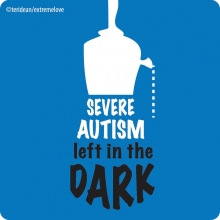Increased Alcoholism Rates Seen in Gastric Bypass Patients
Increased Alcoholism Rates Seen in Gastric Bypass Patients
European researchers have found gastric bypass patients have an increased risk for postoperative alcohol dependence. Based on a retrospective cohort of bariatric surgery patients, the investigators are calling for clinicians to examine gastric bypass patients for postoperative alcohol-related diagnoses.
“The results of this study clearly indicate the need for physicians to screen for alcohol abuse as part of the workup prior to bariatric surgery and to follow patients who undergo this operation carefully for signs of alcohol abuse," said Craig Fisher, MD, MPH, associate professor in the Department of Surgery, Weill Cornell Medical College of Cornell University, in New York City, who was not involved in the study.
According to investigator Magdalena östlund, MD, a researcher in the Department of Molecular Medicine and Surgery, Karolinska Institute, Stockholm, patients’ increased risk for acute alcohol intoxication, dependence, and weight gain after gastric bypass surgery may come from greater alcohol absorption in the small intestine and a more immediate spike in blood alcohol levels.
In light of previous research that showed substance abuse and mental illnesses were more common among obese patients, Dr. östlund’s team set out to investigate whether bariatric surgery might reduce the frequency of these illnesses. She and her colleagues examined data from 12,277 Swedish gastric bypass and restrictive surgery patients treated between 1980 and 2006 and followed for a mean of 8.9 years postoperatively. The researchers compared data between these patients and 122,770 age- and gender-matched controls who did not undergo bariatric surgery; they did not control for obesity in the matched group.
Compared with controls, bariatric surgery patients had significantly higher rates of psychosis, depression, attempted suicide and alcohol-related diagnoses, such as acute alcohol intoxication, and alcohol dependence before surgery. Preoperative rates of these illnesses were similar among patients undergoing restrictive and gastric bypass procedures; however, patients undergoing gastric bypass were 2.3 times more likely than those receiving banding procedures to get inpatient treatment for alcohol-related diagnoses postoperatively (odds ratio, 2.3 for bypass vs. banding). The only other diagnosis that changed in frequency after surgery was psychosis, which decreased in both groups.
“Patients need to be warned of the risks of alcohol consumption following gastric bypass," Dr. östlund said at the 2011 Digestive Diseases Week (abstract 266).
Dr. Fisher said the strengths of the study’s design make the findings exceptionally reliable. “These data are unique in that they capture a population with very complete follow-up information," said Dr. Fisher. “In the U.S., researchers often find it difficult to follow patients continuously, since they sometimes receive initial treatment at one center but go elsewhere for follow-up care. As there are a limited number of bariatric surgery centers in Sweden, the researchers were able to track all of the patients who underwent surgery."
Drs. Fisher and Ostlund had no relevant information to disclose.
Source - General Surgery News
on 2/5/12 11:50 pm - Toronto, Canada
There should be more pre-op education on this matter because once a pattern of alcohol conusmption is established post-op, its hard to break through people's denial about the risks.
Thanks for posting this!
Distal RNY 6/11 SW 456 CW 311 Complications: Small bowel strangulation 12/23/2012, non healing surgical incision--ongoing. Still.
I co-lead a Board here on OH for people with transfer addictions. It is a very slow board. There are hundreds of members, but very few posters. This problem is steeped in guilt and shame. We need to give it serious attention.
http://www.obesityhelp.com/group/crossingtotransferaddiction s/discussion/
Blessings, Jill
WLS 5/31/07. Maintaining a weight loss of 141 pounds and feeling amazing!
![]()
Jen 10 yrs post op
I have never had a food addiction and have not had problems with other transfer addictions after surgery.
Proud Feminist, Atheist, LGBT friend, and Democratic Socialist



